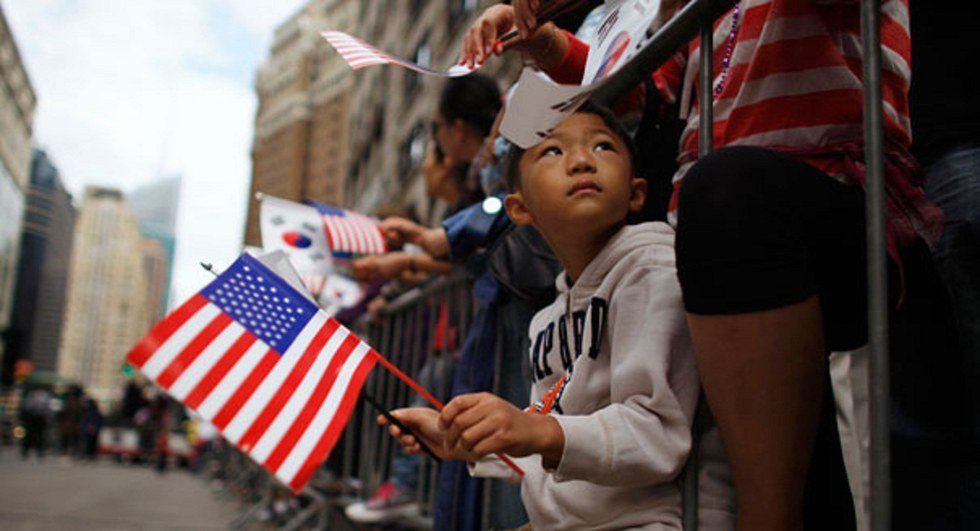"Where are you from?"
"No, really, where are you from?"
The first question is totally innocuous. It's a question that is used to get to know someone who you are meeting for the first time. Our origins shape us and our backgrounds are important to us because, whether we like it or not, it says a lot about the reasons why we are the ways that we are.
However, the second question crosses a line. This question has many underlying implications of racism. It's insane that it is a question that's still being asked of people of color. It implies that you are lying when you are telling the truth. It implies that you clearly don't belong here. It implies that you're less of an American because you're not white. This question makes you feel like you don't really belong and that you are out of place. If you don't belong to the place that you were born and raised in and you definitely don't belong to the country that you "look" like you're from, then you don't really belong anywhere. This question is reserved strictly for people of color because they obviously do not fit the description of a stereotypical American and are of a different ethnicity. However, the year is 2016 and the time for this question to stop being asked is long overdue.
I was born and raised in suburban New Jersey and, although my parents were born in South Korea, they grew up in New York and went to college in America. I am not from Korea. I am from New Jersey.
Another issue with this question is that it makes you feel like you have to prove to people how American you really are. It makes you feel like you have to reject your ethnicity because you don't want to fit into the stereotypes that everyone expects you to play out. However, that shouldn't be a problem. I should be able to be proud of my American and Korean sides because that is what I am. I do not favor one over the other and I should be able to celebrate them both equally. I have been lucky enough to have had the opportunity to visit Korea for the first time this past summer and I am lucky that I have relatives who still reside there. I'm lucky that I have been exposed to the language by my grandparents and I'm grateful for my parents who made sure that I knew how to speak the language that they grew up with. I'm grateful that I can feel at home in two different countries with two very different cultures because they are both a part of who I am.
It's important to be aware of where of your ancestors have come from and to have an appreciation for that culture, but it's also important that you don't let a stereotype define you. If you know people who ask these types of questions, or if you ask these types of questions, let's join the movement to be more open-minded and to get rid of the stigma that is automatically attached to your identity because of the color of your skin.





















